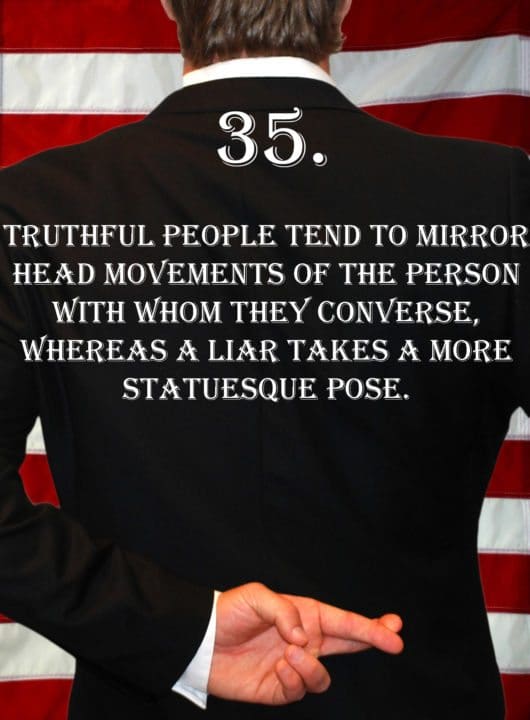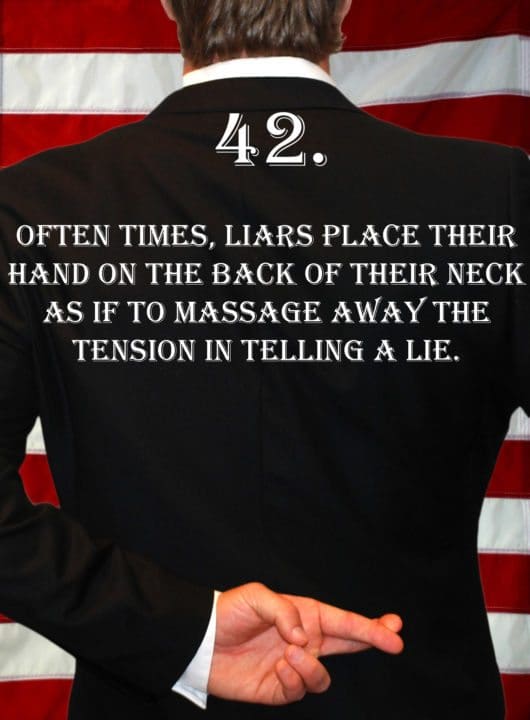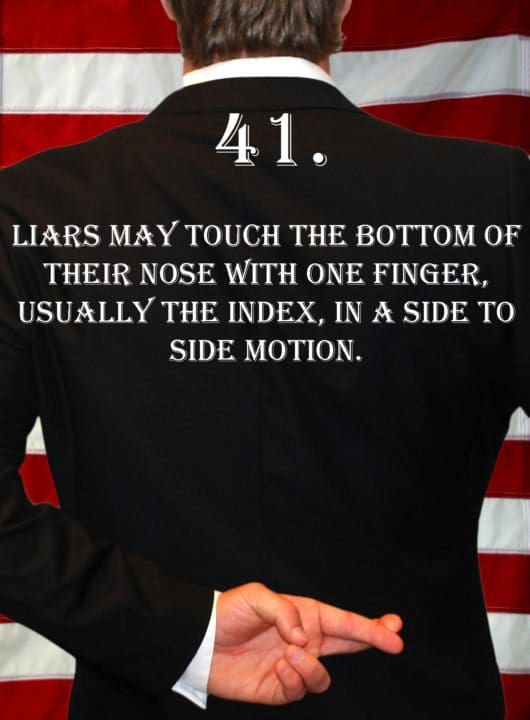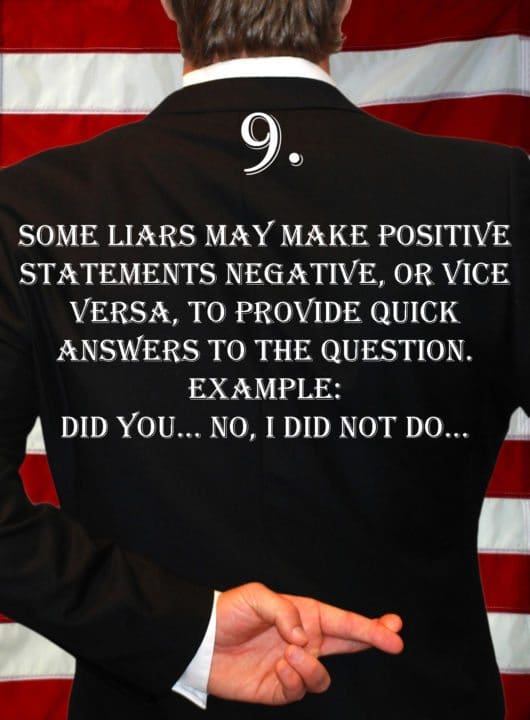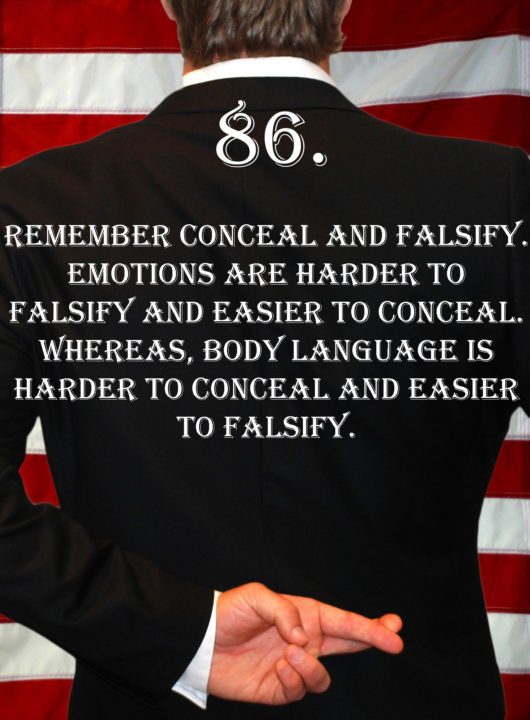
Deception Tip 86:
Remember conceal and falsify. Emotions are harder to falsify and easier to conceal. Whereas, body language is harder to conceal and easier to falsify.
Listen To The Podcast!
E86 – Conceal And Falsify – Deception Tips Podcast – Click Here To Subscribe
Podcast Transcript
Hello and welcome to the Deception Tips podcast where you will learn amazing cues to detect deceit that will help you read people like never before. I’m your host Spencer Coffman, let’s get started.
Hello and welcome to Deception Tip number 86. We are really getting into these deception tips, we’re teaching you how to read people and detect deception so that you will be able to tell whether or not someone is lying to you. Why is this important? Well, it’s important because in today’s world, in today’s society, lies are all around us.
It is said, and studies have shown, that the average person can lie 200 times per day or 10 to 20 times in each conversation, that is a lot of lying. Are these lies harmful?
Well, yes and no, some of them are polite or socialized. ‘How are you doing today?’ ‘I’m good.’ Well, you’re not good because something just happened, things like that.
‘Do you like my new haircut?’ ‘Oh, it’s great’, man, it really is awful, those kinds of lies are all over the place. How about when you receive a present and you don’t like it but yet you pretend you like it because you don’t want to hurt their feelings. Those are lies, are they harming someone? Are they malicious? Are they dangerous? No, but they’re still lies.
You need to know when someone is lying to you so that you can learn to pick out these things. If someone is trying to be malicious or take advantage of you then you need to know and that is why you have been continually listening to the deception tips podcast and I thank you for that.
Make sure to check out the books, I have Deception Tips eBooks and books, also A Guide to Deception, and the Deception Tips videos.
We’ve got the Deception Tips blog, I’ve got all kinds of stuff that you can use to help you continue to learn how to read people and detect deception. It is important and knowing whether or not someone is lying will help you in life. Therefore, study these tips, keep listening, share this stuff with your friends, practice with each other and get to know them.
Last time, we talked about a tip or a sign that was on the face and it wasn’t always related to deception. In fact, it is 100% of the time indicative of embarrassment and that is blushing.
When someone blushes, they are embarrassed about something, something private was revealed. Now, what would that be? Well, it could be that they had a crush on someone and somebody made it known and now they’re blushing.
It could also be anything, it could be that they had a secret that someone told and now they’re blushing. It could be that all of a sudden, their pants got caught in the doorway and they fell off. It could be any number of things but it is indicative of embarrassment, it doesn’t always mean that someone is being deceptive or that they’re lying.
In addition, it doesn’t always mean that ‘oh, you’re blushing, therefore, you like so-and-so or you have a crush’. ‘Oh, do you have a crush on somebody, on this person? You’re blushing, you must, you have to have a crush’. Well, no, they don’t have to have a crush on that person, you’re simply putting them on the spot.
Of course, it would be embarrassing, if all of a sudden, I claim that you have a crush on somebody that you really don’t like, you’re going to be embarrassed. You’re going to be like ‘no way, I would never have a crush on that person’, therefore, you will blush either way. It doesn’t mean you love that person, it means you’re embarrassed about it.
So, how does this roll into deception? Well, if someone is called out on their lie, if their lie is discovered then chances are they will be a little bit embarrassed. It doesn’t always mean that they’re going to blush, however, when something private is revealed, that’s when we see things occurring on the face where people will blush.
If something private is revealed, private meaning the lie, then there is a greater chance that a person may blush. They aren’t going to always blush but if you see blushing, you want to take a look at it, think about it and say, alright, why is that person blushing? What was revealed? Is it something that I need to pay attention to relating to deception? Take a look at that and you will have it down, no problem.
Today, we’re having another discussion about a similar topic, it’s not necessarily a sign of deception or something visual. However, this is more of a general guideline that liars tend to follow because they do not always want to invent a new lie every time they’re lying. Think about it, remembering all of those details would be a nightmare, they’re going to trip up and stumble, guaranteed.
It will absolutely happen if they have all of those different details and they’re trying to recall an entirely fictitious story. Therefore, liars are going to try to fabricate or change the truth a little bit, they’re going to try to conceal it, and they’re not going to come up with an entirely new story. We talked about this before, we spoke of this in episode 65, Conceal the Truth.
How liars would prefer to conceal the truth rather than come up with an entirely new story. Today, we’re talking about something very similar, that they want to conceal these things rather than come up with new stories. Also, that emotions are harder to falsify than conceal, so we’re talking about the emotions and the stories today.
So, here it is, this is Deception Tip number 86. Remember conceal and falsified, emotions are harder to falsify and easier to conceal whereas body language is harder to conceal and easier to falsify. Here it is again, Deception Tip number 86. Remember conceal and falsified, emotions are harder to falsify and easier to conceal whereas body language is harder to conceal and easier to falsify.
So, that could be a little bit confusing simply because it’s harder and easier, falsify and conceal and back and forth, and which is which. Oh my goodness, it’s like the scarecrow in Wizard of Oz saying that way, you never know. However, we are going to break this down so that you will easily be able to remember it. Conceal and Falsify, that’s what you need to remember.
We talked about it in number 65, where people prefer to conceal the truth, they want to hide it because they don’t want to come up with an entirely new story, it’s simply way too much to remember.
Therefore, think of that in terms of emotions, when people are speaking, they’re speaking their emotions and emotions are harder to falsify and easier to conceal. So, they want to conceal not only the story but also their emotions.
Body language, that’s unconscious, it comes out without them knowing, they’re not consciously aware. Therefore, that is harder to conceal because they don’t know it’s coming and it’s easier to falsify because they can consciously fake it.
You can consciously pretend to leak some behaviors or to do some gestures, that is how you can break that down. Conceal and falsify and we’re going to talk a lot more about it coming up right after this.
Are you loving this podcast? Spencer Coffman has created some Deception Tip videos to help you keep the wool off your eyes. Subscribe to the Body Language channel on YouTube today.
Welcome back to Deception Tip 86, where we are talking about Concealing and Falsifying. We’ve stated that emotions are harder to falsify, this is because emotion is something that we feel, it’s really just passionate, it is emotion, and emotion is harder to fake. Why are emotions harder to fake? Well, unless you really think about it and conjure it up in your mind, an emotion, you can’t push it forward.
However, if you think of something funny then generally you could laugh but that’s really not an emotion, that’s simply laughter, that’s a behavior. If you think of something really sad, you could feel the emotion of sadness, so you could bring that on. You could falsify that but are you really falsifying it if you’re thinking of something sad?
No, because now it is truthful, you’re truly feeling sad about whatever it is you’re thinking of. So, remember that emotions are harder to falsify, in addition, they are easier to conceal. If I’m feeling sad and it’s coming on my face, I can easily mask that with a smile or something else. Other cultures like Asia and those types of ethnicities, they do not like to show sadness, it’s not a good thing in their culture.
Therefore, when they’re getting chewed out or yelled at or if they’re really crying or at a funeral or something, they may be smiling. Why? Because it’s not polite to show sadness.
Now that’s not every single person who’s Asian but some cultures over there, some groups over there are that way. I’m sure that you have found out about them if not, you can take a look and you’ll learn something new.
Emotion is hard to falsify, it’s easier to conceal, that is why there are so many masking behaviors or cover-up gestures to hide this emotion. Body language is harder to conceal, people can conceal the emotion by pretending or making a conscious gesture to cover it up. Body language is harder to conceal because they may not know that the unconscious is leaking at the certain time it leaks this body language,
For example, if all of a sudden, there’s a micro-expression on the face or there’s something like twitching or nervousness in the leg. They’re bouncing their knees or whatever type of unconscious behavior that is being leaked, the conscious may not realize that it’s happening. Therefore, it’s harder to conceal if it doesn’t know what’s going on.
It’s easier to falsify because the conscious can come up with these behaviors, no problem. If the conscious knows, okay, let’s see, when I’m really nervous, I’m unconsciously bouncing my leg or bouncing both my legs. Alright, so if I want to pretend to be nervous, well then I’m going to bounce my legs. Pretty soon, it’ll just be a reflex and they’ll start bouncing and people will think that I am nervous.
They are falsifying that body language, it’s easier to falsify, harder to conceal. Why? Because it’s unconscious. Now you say, wait a minute, emotions are unconscious as well. Yes, they are. Well then, why are they easier to conceal and harder to falsify? Well, it’s because genuine emotional expressions or genuine expressions of emotion, they appear instantly, quickly, very fast.
They come on and off, a smile, a genuine smile is less than four seconds, micro-expressions, surprise, fear, anger, happiness. Those expressions of emotion are less than a second, they’re a fraction of a second, they’re like a quarter of a second, sometimes half, if you’re lucky. They happen fast, they’re much harder to falsify, and they’re easy to conceal.
If you have fear or sadness, you can cover that up with a smile or with a yawn or opening your mouth, faking a yawn. You can cover up and hide emotional expressions on the face a lot easier than you can falsify them. The reason is that there are so many tiny muscles that are there.
Unless you learn to consciously control each and every one of those muscles, you will not be able to falsify that emotion, that expression, that emotional expression. You will not be able to falsify it unless you consciously learn how to control each and every one of those muscles.
In addition, you need to know micro expressions, you would need to understand each and every micro expression and what it means. That way, once you understand what they mean and once you learn how to control all those muscles, you could portray, consciously, the correct micro-expression for the feeling that you want to fake or the emotion that you want to think.
Do you see how tough this would be? Most people cannot see a micro-expression even if it’s shown to them three or four times with perfect focus. It’s so quick, you have to train yourself to see it, this would take a long time.
It takes years of training to be able to know and understand these micro-expressions. It would take even more training to control all the muscles in your face and to portray those at a split second in conversation, nearly impossible.
Therefore, emotions are harder to falsify, and easier to conceal. Body language is harder to conceal because, again, it’s unconscious, easier to falsify because it’s our body. It’s not such tiny, little things, it’s easy for me to move my hand, and my arm but it’s hard for me to move a tiny muscle in my face.
I want to thank you for listening to this week’s episode of the Deception Tips podcast. I hope that you’ll share it with your friends, subscribe to the feed, check out the videos, take a look at the blog and the books that I have available, and, as always, tune in next week for a new deception tip.
Video Transcript
Hey guys, my name is Spencer Coffman, thank you for watching the Deception Tips videos. They’re all about teaching you how to read people and detect deception so that you will be able to tell if someone is lying to you. Today, we are going to talk about a cool little situation on the background of emotions, body language, expression, and what is going on.
How it is for people who are trying to tell these lies, they’re trying to pull one over on you. Is it easier for them to fake it or conceal it or hide it, what is it and how it’s going back and forth? So, they’re concealing, and falsifying information and expressions and one is easier to conceal, one is easier to falsify and that’s what we’re talking about today.
So, here it is, this is Deception Tip number 86. Remember conceal and falsify. Emotions are harder to falsify and easier to conceal. Whereas body language is harder to conceal and easier to falsify. I know this sounds a little bit confusing with emotions, conceal, falsify, body language, conceal, falsify, but it’s really simple when you think about it.
We’ll break it down, emotions, they are easier to conceal and harder to falsify, why? Emotions happen instantly, it’s a split second on the face, its facial expression, facial expressions of emotion. So, these are easier to conceal, why? It is because, as we talked about before, smiles can just cover up an emotion, no problem and they can be concealed.
Whereas falsifying an emotion is hard because you need to bring your mind back to that place. So, if you want to falsify sadness, you have to think of something sad and hope that that emotion will follow on your face or happiness or anger, etc. In addition, if you want to pretend to be angry, it’s more than just putting a frown on your face, there’s more that goes into the genuine emotional expression on your face, so they’re harder to falsify.
They are easier to conceal because when an emotional expression happens, it happens right away, so you have to conceal it if you’re being a liar, if you’re lying. Whereas body language is easier to falsify and harder to conceal, why is this? It’s easier to falsify because body language can be conscious and unconscious, so can emotional expression but you don’t have to put yourself there.
So, if I want to falsify body language and be pointing, I can easily point, whether it’s a false pointer or not is irrelevant. If I want to falsify a shoulder shrug, I can shrug my shoulders consciously or it could happen unconsciously if I don’t know what I’m talking about. They’re easier to falsify because it’s doing something, it’s my motor skills, it’s my motor movement, I can do it.
Whereas it’s harder to conceal because if you have an emotional response in your mind and then it kicks out body language, whether it’s something nonverbal and unconscious or it’s something that you do, it’s harder to conceal that. For example, if I have a stop gesture and I’m speaking with someone and I’m going like this, that’s harder to conceal. What am I going to do, put my other hand there?
If I’m hushing my lips, that’s harder to conceal, I can’t put my other fingers up or go like this and hush my lip, it’s harder to conceal that, it’s easier to falsify it. If I want to pretend to be like I’m uncertain, I could pretend to put my fingers over my lips and hush my lips as we’ve talked about in previous tips. I can pretend to do that but if I’m already doing that unconsciously, it’s unconscious, I don’t know I’m doing it, it’s harder to conceal that.
So, just remember that conceal and falsify, it’s harder to conceal body language, it’s easier to falsify body language. It’s harder to falsify emotional expressions, it’s easier to conceal emotional expressions. If you remember that when you’re conversing with other people and when you’re interrogating them or trying to find the truth, just remember that and think about it.
If you see a gesture, well, that could be a false gesture, they’re not going to cover it up but if you see an emotional expression or a smile well, that could be concealing, not falsifying. So, keep that in mind as you look out for those patterns and clusters of behavior in your deception detection abilities.
So, if this is your first time watching these videos here on YouTube, I’d love to have you subscribe to the channel. Also, feel free to comment with any questions you may have as well. If you’d like some more information, we’ve got books, blog posts, and podcasts all available on spencercoffman.com that are dedicated to teaching you exactly what every body is really saying.
Until next time.

